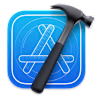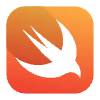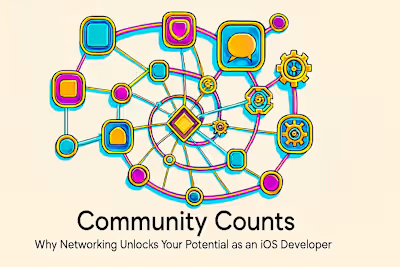From Freelancer to Founder: A Guide to Scaling Your iOS Development Business

From Freelancer to Founder: A Guide to Scaling Your iOS Development Business
The Mindset Shift: From Maker to Manager
Are You Ready to Scale? A Self-Assessment
Working ON vs. IN Your Business
Key Models for Scaling Your iOS Business
The Agency Model: Hiring and Managing Others
The Productized Service Model
The Product Model: Building Your Own Apps
The Operational Playbook for Growth
Legal and Financial Foundations
Finding and Vetting Your First Hires
Systems for Project Management and Client Communication
Conclusion
References
From Freelancer to Founder: A Guide to Scaling Your iOS Development Business
You've been crushing it as a freelance iOS developer. Your clients love your work, your calendar is fully booked, and you're making good money. But here's the thing - you've hit a wall. There are only 24 hours in a day, and you can't clone yourself (yet). Sound familiar?
The truth is, every successful freelancer eventually faces this crossroads. You can keep trading time for money, or you can scale up and build something bigger. This guide will show you how to make that leap from freelancer to founder, leveraging your professional network and building systems that work while you sleep. And yes, we'll talk about how to do it all without burning out - because what's the point of success if you can't avoid burnout and actually enjoy it?
The Mindset Shift: From Maker to Manager
Here's what nobody tells you about scaling: the hardest part isn't finding clients or hiring people. It's rewiring your brain. You've spent years perfecting your craft, writing beautiful Swift code, and solving complex problems. Now you need to step back and let others touch your baby. That's scary.
But think about it this way. Right now, you're the star player on a one-person team. To scale, you need to become the coach. You're not giving up coding - you're multiplying your impact by teaching others to code the way you do.
Are You Ready to Scale? A Self-Assessment
Before you start posting job ads, let's get real about whether you're actually ready for this. Ask yourself these questions:
Why do you want to scale? If your answer is "to make more money," that's valid but not enough. Scaling brings headaches you don't have as a solo freelancer. You'll deal with payroll, manage personalities, and spend less time coding. Are you genuinely excited about building a team and creating systems? Or do you just want a bigger paycheck?
What's your financial runway? Scaling costs money before it makes money. You'll need cash to pay contractors before clients pay you. Can you cover 3-6 months of expenses if things get rocky? If not, save up first.
How's your client pipeline? One steady client isn't enough to support a team. You need multiple projects in the pipeline and confidence that work will keep flowing. If you're still hustling for each new gig, focus on stabilizing your client base first.
Are you ready to manage people? This is the big one. Managing developers is nothing like writing code. You'll deal with missed deadlines, communication issues, and quality control. Some days you'll wonder why you didn't just do it yourself. If the thought of giving feedback or handling conflicts makes you queasy, you might want to practice with one contractor before going all-in.
Working ON vs. IN Your Business
Michael Gerber's classic concept from "The E-Myth" hits different when you're a developer. Working IN your business means writing code, fixing bugs, and attending client meetings. It's what you do now. Working ON your business means creating systems, finding new clients, and improving processes.
The shift happens gradually. Maybe you start by spending Friday afternoons on business development. Then you hire your first contractor and suddenly you're reviewing code instead of writing it. Before you know it, you're spending more time in spreadsheets than Xcode.
This isn't selling out - it's leveling up. You're not abandoning your craft; you're applying your problem-solving skills to a bigger challenge. Instead of optimizing an algorithm, you're optimizing a business. Instead of debugging code, you're debugging processes.
The key is being intentional about the transition. Block out specific time for strategic work. Maybe it's two hours every morning before you dive into client work. Treat it like a client meeting - non-negotiable and focused.
Key Models for Scaling Your iOS Business
Not all scaling paths are created equal. Each model has its own flavor of challenges and rewards. Let's break down your options so you can pick the one that fits your personality and goals.
The Agency Model: Hiring and Managing Others
This is the classic route. You hire developers (as contractors or employees) and take on more projects than you could handle alone. It's straightforward in concept but tricky in execution.
The upside? You can grow revenue quickly. If you're billing $150/hour and paying a contractor $75/hour, you're making money while they work. Scale that to five developers and you're looking at serious income.
The downside? You become a middle manager. Your days fill up with status meetings, code reviews, and client calls. You're responsible for quality control, which means when your contractor ships buggy code at 5 PM on Friday, guess who's fixing it over the weekend?
Hiring challenges are real. Good iOS developers are expensive and in high demand. You're competing with big tech companies and funded startups. Your secret weapon? Flexibility and interesting projects. Many developers prefer contract work for the variety and freedom.
Project management becomes your new full-time job. You'll need systems for tracking progress, communicating with clients, and ensuring code quality. Tools like Jira or Linear become your best friends. You'll develop templates for everything from project kickoffs to code review checklists.
Quality control can make or break you. Your reputation is on the line with every line of code your team ships. Set up robust review processes. Create coding standards. Build a culture of ownership where developers take pride in their work, not just complete tickets.
The Productized Service Model
This model flips the script on traditional freelancing. Instead of custom quotes for every project, you offer specific services at fixed prices. Think of it like a menu at a restaurant instead of a personal chef.
Productized services work especially well for iOS development. You might offer:
App Store Optimization Package: Fixed price for keyword research, description writing, and screenshot design
SwiftUI Migration Service: Convert one UIKit screen to SwiftUI for a set fee
Performance Audit: Comprehensive app performance review with specific recommendations
Push Notification Implementation: End-to-end push notification setup including backend configuration
The beauty of this model? It's predictable and scalable. You know exactly what you're delivering and how long it takes. Clients love the transparency - no surprise invoices or scope creep.
How to productize web development services applies perfectly to iOS work. Start by identifying tasks you do repeatedly. What questions do clients always ask? What problems do you solve over and over? Package those solutions.
The key is finding the sweet spot between too narrow (no market) and too broad (just regular freelancing with extra steps). Examples of productized services show that specificity sells. "iOS Development" is too broad. "Core Data Integration for E-commerce Apps" is specific enough to attract the right clients.
The Product Model: Building Your Own Apps
This is the dream for many developers - build an app, launch it, and watch the passive income roll in. Reality check: it's the hardest path, but potentially the most rewarding.
The upside is obvious. A successful app can generate income while you sleep. You own the product, set the direction, and keep all the profits. You're not at the mercy of client whims or market rates.
The downside? Most apps fail. You're not just a developer anymore - you're a marketer, customer support rep, and product manager. You'll spend more time on App Store optimization and user acquisition than coding.
Starting a productized service as a software developer can be a stepping stone to products. Use service revenue to fund product development. Learn what users actually want by solving their problems directly.
Success requires a different mindset. Features don't matter if nobody uses them. Beautiful code doesn't pay the bills if your app doesn't solve a real problem. You'll need to embrace metrics, user feedback, and constant iteration.
The Operational Playbook for Growth
You've picked your path. Now comes the unsexy but essential work of building a real business. This is where many developers stumble - not because they can't do it, but because they underestimate how important it is.
Legal and Financial Foundations
First things first: you need to separate your business from yourself. This isn't just about looking professional - it's about protecting your personal assets and setting yourself up for growth.
Form a business entity. An LLC is usually the sweet spot for iOS development businesses. It protects your personal assets if something goes wrong and gives you flexibility in how you're taxed. Yes, it costs a few hundred dollars and requires some paperwork. Do it anyway.
Get your contracts tight. That handshake deal with your buddy won't cut it anymore. You need real contracts that spell out scope, payment terms, and intellectual property rights. Find a lawyer who understands software development. The few thousand dollars you spend now will save you from massive headaches later.
Set up proper financial systems. Open a business bank account - don't mix personal and business funds. Use accounting software like QuickBooks or FreshBooks from day one. Hire a bookkeeper when you can afford it. Tax time will thank you.
Consider business insurance. Professional liability insurance (also called errors and omissions) protects you if a client claims your code caused them losses. General liability covers other business risks. It's not sexy, but neither is getting sued.
Finding and Vetting Your First Hires
Your first hire sets the tone for your entire business. Choose wisely. The temptation is to hire fast when projects are piling up, but a bad hire costs more than a delayed project.
Start with your network. The best developers rarely respond to job posts. They're already busy. Tap into your professional connections. Who have you worked with that impressed you? Who do your developer friends recommend? Personal referrals are gold.
Look beyond technical skills. Yes, they need to know Swift and UIKit. But can they communicate clearly? Do they meet deadlines? Are they comfortable with ambiguity? A brilliant developer who goes dark for days will sink your business.
Create a realistic test project. Forget algorithm challenges. Give them a real-world task similar to your actual work. Maybe it's building a simple feature or reviewing and improving existing code. Pay them for their time - it shows respect and gives you a true sense of their work.
Start with contract work. Don't jump straight to full-time employees. Begin with project-based contracts. It's lower risk for both sides and lets you test the working relationship. You can always convert strong performers to longer-term arrangements.
Check references religiously. Actually call their previous clients or employers. Ask specific questions: How did they handle feedback? Did they meet deadlines? Would you hire them again? Listen for what's not said as much as what is.
Systems for Project Management and Client Communication
Systems are what separate a real business from a chaotic freelance operation. They ensure consistent quality even when you're not personally touching every project.
Choose your project management tool and stick with it. Whether it's Jira, Linear, or Notion, pick one and use it religiously. Every task gets logged. Every decision gets documented. Your future self (and your team) will thank you.
Create standard operating procedures (SOPs). Document how you do everything. How do you onboard new clients? What's your code review process? How do you handle bug reports? Write it down. Yes, it's tedious. Do it anyway.
Establish communication rhythms. Set expectations early. Maybe it's weekly client updates every Friday. Daily standups with your team at 9 AM. Monthly retrospectives to improve processes. Consistency builds trust.
Build templates for everything. Project proposals, status updates, code review checklists, onboarding documents - templatize it all. This isn't about being robotic; it's about not reinventing the wheel every time.
Use time tracking religiously. You need to know where time goes to price effectively and spot inefficiencies. Tools like Toggl or Harvest make it painless. Track everything, analyze regularly, and adjust your processes based on what you learn.
Remember, these systems aren't set in stone. Start simple and iterate. What works for a two-person team won't work for ten. The goal is creating enough structure to ensure quality without suffocating creativity.
Conclusion
Scaling your iOS development business isn't just about making more money - it's about multiplying your impact. Every developer you hire, every system you build, and every process you refine extends your ability to create great software.
The journey from freelancer to founder is challenging. You'll make mistakes. You'll hire the wrong person. You'll lose a client. That's not failure - it's tuition in the school of business. The developers who succeed are the ones who keep learning and adapting.
Start small. Maybe hire one contractor for your next project. Build one productized service. Document one process. You don't have to transform overnight. But start moving in the right direction today.
Your code has already changed how people use their phones. Now it's time to build something that outlasts any single app. Whether you choose the agency model, productized services, or building your own products, you're not giving up development - you're taking it to the next level.
The best time to plant a tree was 20 years ago. The second best time is now. Your future team is waiting. Your bigger impact is calling. Time to answer.
References
Like this project
Posted Jul 6, 2025
Ready to move beyond solo projects? This guide outlines the key steps to scale your freelance iOS development work into a thriving agency or product business.









